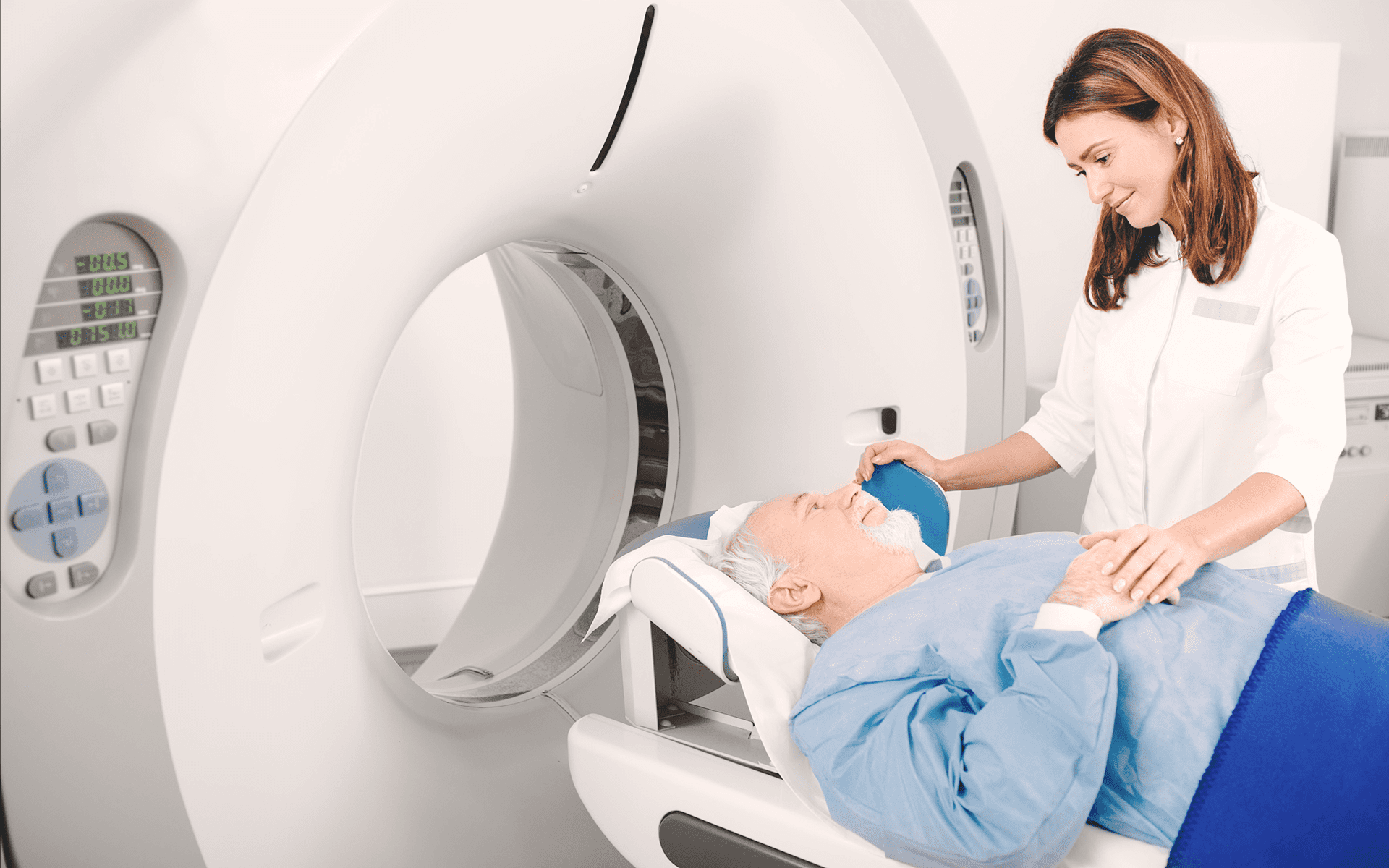Stage 2 Pleural Mesothelioma
Staging pleural mesothelioma is an essential step in determining how far the cancer has spread throughout the body. A stage 2 mesothelioma diagnosis means the disease was discovered early, and patients are usually eligible for more aggressive treatment options.

What’s Stage 2 Pleural Mesothelioma?
Pleural mesothelioma develops in the protective sheath around the lungs. When genes mutate, they form cancerous tumors in the patient’s body.
The primary cause of the disease is exposure to asbestos. Asbestos is a group of fibrous minerals used in building material, fire-resistant sprays, brake pads, and military products and supplies. The carcinogen was heavily used in a variety of applications throughout the 1900s.
Veterans who have developed mesothelioma may be eligible for VA compensation. To find out if you qualify, speak with a patient advocate today.

When inhaled or ingested, asbestos fibers become embedded in the pleural tissue and can’t be removed. Over time, the fibers create inflammation, causing the genes to mutate and develop into cancerous tumors.
Stage 2 patients have several different treatment options to improve their prognosis or life expectancy. At this point, tumors haven’t spread throughout the body, but are entering nearby lymph nodes, which contain white blood cells that fight off unwanted contaminants. When lymph nodes become overwhelmed with cancer cells, the cells start to enter the bloodstream.
Symptoms of Stage 2 Mesothelioma
Stage 2 symptoms are typically mild, but more widespread than stage 1. Common symptoms include chest pain, chronic cough, fatigue, shortness of breath, and body aches.
These symptoms often mirror more common illnesses. Doctors often misdiagnose this disease for:
- Influenza (flu)
- Irritable bowel syndrome (IBS)
- Pneumonia
- Hernia
- Coronary artery disease
- Emphysema
- Gallstones
- Congestive heart failure
- Chronic obstructive pulmonary disease (COPD)
- Ovarian Cancer
- Metastatic lung cancer
- Lung cancer
Diagnosing Stage 2 Meso
Doctors use a series of diagnostic tools to determine if pleural mesothelioma is present in the body. Standard diagnostic methods include imaging tests, blood tests, and biopsies.
- Imaging tests, like X-rays, CAT scans, PET scans, and MRIs show signs of pleural mesothelioma like pleural thickening, fluid buildup, and tumors.
- Blood tests indicate the presence of cancer cells.
- Biopsies remove tissue from the tumor to determine what cell type is present and where cancer has spread.
It takes years for the disease to develop after the initial asbestos exposure. Patients with pleural mesothelioma are typically diagnosed in later stages. It is essential to see a doctor as soon as you begin to notice symptoms.
How Is Staging Determined?
Doctors determine the stage of cancer once they know how far the disease has spread. Different diagnostic techniques are able to determine tumor size and location. Medical providers base treatment and prognosis on staging information.
Researchers also use staging information to test cancer treatments on patients with the same prognosis. The stages of pleural mesothelioma are 1 through 4. There are three staging systems (TNM, Brigham, and Butchart). Doctors typically use the TNM system to determine the stage.
The TNM staging system looks for the number of affected lymph nodes, where cancer has spread (metastasis), and tumor size. At stage 2, cancer hasn’t spread throughout the body.
In the TNM system, the “T” refers to the size and extent of the primary tumor, and “N” refers to the number of nearby lymph nodes that contain cancer cells. Finally, the “M” refers to whether cancer has metastasized, or spread throughout the body.
Stage 2 pleural mesothelioma is considered an early stage, but cancer has likely reached the lymph system, causing cancer cells to start to overwhelm lymph nodes. The disease is localized, appearing only on one side of the body, but cancer cells may have spread to the other lung. There is no distant metastasis.
According to the TNM scale, at stage 2, the primary tumor may still be resectable, or removed with surgery.
Treating Stage 2 Pleural Mesothelioma
Doctors plan treatment around the stage of the disease. Standard treatments can include surgery, chemotherapy, radiation, immunotherapy, or a combination of treatments.
Mesothelioma patients diagnosed at stages 1 through 3 are usually eligible for surgery. Patients can expect to receive chemotherapy treatment or radiation therapy before or after surgery to shrink tumors and kill remaining unhealthy cells.
If eligible, patients also have the option to participate in clinical trials. Clinical trials test new treatments on patients before the Food and Drug Administration (FDA) approves them. The purpose of clinical trials is to learn more about the disease and understand how new treatments affect pleural mesothelioma patients.
Veterans with mesothelioma can take action without affecting their benefits.

Stage 2 Pleural Mesothelioma Outlook
Doctors base the prognosis, or projection, on other patients’ survival rates. Patients with stage 2 pleural mesothelioma have an average life expectancy of 19 months. According to the American Cancer Society, patients with stage 2 pleural mesothelioma have a 2-year survival rate of 38% and a 5-year survival rate of 10%.
The mesothelioma stage is an essential factor in determining a patient’s prognosis, or life expectancy. However, several other factors also affect prognosis.
- Sex: women typically live longer than men
- Age: younger patients are more likely to survive a mesothelioma diagnosis
- Having healthy levels of LDH (energy production) in the blood
- Having normal levels of red blood cells, white blood cells, and platelets
- Quality of life: the ability to carry out routine daily tasks
Mesothelioma is rare, and there isn’t much research available. However, emerging treatments offer new options for patients.


